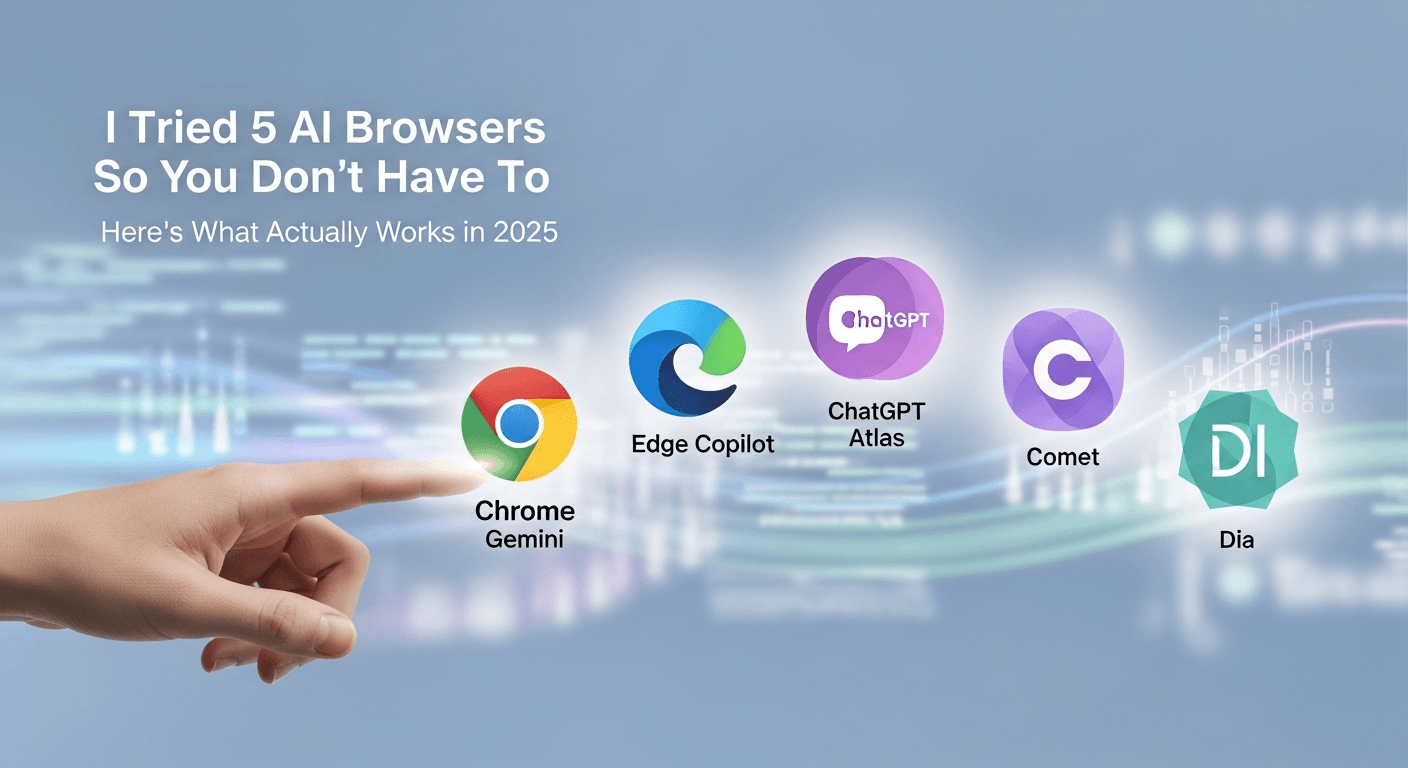
USAII and MercenaryMarketing.ai Join Forces to Enhance Access to AI Certifications
AI Skills Are in Demand: Bridging the Gap
As artificial intelligence transitions from experimental projects to integral elements of everyday operations, professionals and organizations are eager to acquire the skills necessary for responsible, large-scale implementation. In response, the United States Artificial Intelligence Institute (USAII) has teamed up with MercenaryMarketing.ai to broaden access to AI certifications and learning programs for individuals and teams. This collaboration aims to leverage MercenaryMarketing.ai’s extensive market reach and enablement services to distribute USAII’s AI training and certification offerings. The ultimate goal is to equip more people with job-ready skills in a shorter timeframe.
Why is this significant? The demand for AI proficiency is far outpacing the available supply. According to the World Economic Forum, 44 percent of workers’ skills will undergo transformation by 2027, with AI and big data emerging as the fastest-growing areas ( WEF, 2023). McKinsey estimates that generative AI could contribute trillions of dollars in value annually across various sectors, particularly when coupled with workforce upskilling and innovative workflow strategies ( McKinsey, 2023). Moreover, IBM’s Global AI Adoption Index reveals that most organizations accelerating their AI initiatives also plan to invest in skilling programs to close existing gaps (IBM, 2023).
In this context, USAII’s partnership aims to make credible AI education accessible to professionals at various career stages and to companies striving to build consistent, measurable capabilities.
Introducing the Partners
Who Is USAII?
USAII is a professional certification body dedicated to AI education and assessments. Its programs focus on practical AI literacy, technical skills for building AI solutions, and leadership readiness, supplemented by proctored exams and tailored learning paths. For more details, visit the official site (USAII).
Who Is MercenaryMarketing.ai?
MercenaryMarketing.ai is a marketing and enablement firm collaborating with technology and education brands to drive growth, enhance distribution, and improve learner engagement. Through this partnership, MercenaryMarketing.ai will help extend USAII’s AI certifications and programs to a broader audience, which includes professionals, enterprises, and channel partners. Learn more about their offerings on the company site (MercenaryMarketing.ai).
Overview of the Partnership
The partnership announcement states that MercenaryMarketing.ai will facilitate the distribution and awareness of USAII’s AI certifications and learning programs across multiple markets. While the specific commercial terms remain confidential, these generally include activities such as:
- Promoting and enrolling learners in USAII’s AI certification programs.
- Collaborating on campaigns to align certifications with job roles and industry needs.
- Coordinating group enrollments and enablement for corporate teams.
- Supporting events, webinars, and content to help learners identify programs that fit their goals.
- Providing a channel for organizations to integrate certifications into their internal learning paths.
The partnership’s primary aim is clear: to expand access to structured AI learning and present learners with recognized competence signals that employers can trust.
Why This Matters Now
AI is revolutionizing the workplace. Organizations are transitioning from experimentation to real-world deployment, especially in areas like analytics, customer operations, software development, product design, and risk management ( McKinsey, 2023).
Three evolving trends underscore the timeliness of this partnership:
- Urgent Need for AI Literacy: Not everyone is required to be a machine learning engineer, but most knowledge workers will interact with AI in some capacity. Research indicates that employees equipped with AI tools and training can reclaim valuable time and enhance work quality ( Microsoft and LinkedIn, 2024).
- Focus on Responsible AI: Companies require professionals who grasp model limitations, biases, data privacy, and compliance requirements, extending beyond mere tool usage. Guidance from organizations like the OECD and NIST accentuates the importance of governance and risk management in AI programs ( OECD AI; NIST AI RMF).
- Recognizing Skills Across Borders: Well-designed certifications can provide learners with a reliable means of demonstrating proficiency, enabling hiring managers to assess candidate skills consistently across regions ( WEF).
What Learners and Organizations Can Expect
USAII’s catalog includes a diverse range of AI certifications and learning paths tailored to varying levels of expertise. Though titles and specifics may evolve, they generally fall into four categories:
- AI Literacy and Foundations: Designed for professionals seeking to grasp AI concepts, terminology, and practical applications.
- Technical Builder Path: Targeted at practitioners specializing in data, modeling, MLOps, and integration.
- Ethics, Risk, and Governance: Focused on leaders and contributors aligning AI initiatives with company policy and regulations.
- Leadership and Transformation: Aimed at executives and product owners who drive AI adoption within organizations.
This means learners can start based on their goals and progressively advance to more specialized programs. For teams, a role-based approach allows managers to associate job functions with milestones and track progress over time.
How Certification Adds Value
Not all learning experiences are created equal. Meaningful certifications enhance value through structured curricula, practical assessments, and independent validation. For learners, reputable certifications can:
- Exhibit validated skills to hiring managers and clients.
- Boost confidence through hands-on projects and labs instead of theoretical learning.
- Link learning outcomes to actual job responsibilities.
For organizations, certifications foster consistency and measurement by:
- Creating a common language and baseline for AI knowledge across roles.
- Minimizing risks by ensuring teams understand responsible AI practices.
- Accelerating adoption by aligning learning with key use cases and performance metrics.
This is particularly significant as companies set up AI centers of excellence and task business units with adhering to industry standards. Integrated, role-based learning and assessments can streamline the journey from training to real-world impact ( IBM, 2023).
Who Benefits the Most?
Individual Professionals
If you’re transitioning careers, returning to the workforce, or seeking to add AI proficiency to your skill set, a recognized certification can distinguish you from the competition. Relevant certifications may suit:
- Business professionals or analysts requiring AI literacy and practical applications.
- Data, analytics, or engineering practitioners venturing into machine learning or LLMOps.
- Product managers, strategists, or consultants responsible for AI-driven projects.
- Compliance, risk, or legal professionals focused on AI governance and policy.
Enterprise and Mid-Market Teams
For organizations, certifications form the foundation of an AI enablement strategy. Key benefits include:
- Faster realization of value by aligning learning with prioritized use cases.
- Reduced risk through consistent training in privacy, bias, and model governance.
- Enhanced hiring and internal mobility facilitated by shared credentialing standards.
Partners and Educators
Training partners, educational institutions, and accelerators can integrate certifications into their programs to provide learners with portable, employer-recognized credentials. The collaboration with MercenaryMarketing.ai may also create opportunities for resellers and channel partners in professional education.
How to Assess an AI Certification
Before dedicating time and resources to any certification program, consider these evaluation criteria:
- Curriculum Quality: Is the content modern and relevant to current tools and workflows, including both traditional ML and generative AI?
- Assessment Rigor: Does the exam or capstone project measure applied skills rather than mere memorization?
- Recognition: Is the certification acknowledged by employers, aligning with relevant job roles or frameworks?
- Ongoing Maintenance: Are there options for learners to update their skills as the field progresses?
- Ethics and Governance: Does the program address responsible AI practices that comply with established frameworks like the NIST AI RMF?
Getting Started
If you or your organization is considering USAII programs, here’s a step-by-step approach to begin:
- Identify Priority Roles: Choose one or two roles where AI implementation can have immediate impact, such as customer support or software development.
- Map Competencies: Outline the skills required for these roles, covering areas from AI literacy to technical expertise.
- Select Learning Paths: Choose certifications or learning tracks that align with those identified skills.
- Pilot and Measure: Enroll a small group, assess outcomes, and collect feedback.
- Scale: Expand to additional teams, customize content for your context, and incorporate learning objectives into onboarding and performance appraisals.
Caveats and Considerations
While certifications offer value, they should not replace practical experience. Balance credentialing with hands-on projects of real relevance to your organization. Consider establishing an internal portfolio showcasing AI use cases implemented by learners. Additionally, remain vigilant about vendor neutrality; teams often benefit from learning foundational principles alongside tool-specific training.
Lastly, critically assess any claims of guaranteed outcomes. The most reliable programs are transparent about what they teach, how they assess, and the recognition of their credentials.
The Conclusion
The partnership between USAII and MercenaryMarketing.ai aims to enhance access to AI certifications and structured learning for professionals and teams. As AI adoption grows and workforce skills continue to shift, such collaborations can help bridge practical knowledge gaps and present clear competencies for employers. If your goal is to build AI capabilities in 2025, consider integrating role-based learning, verified assessments, and ongoing skilling strategies into your approach.
FAQs
What is USAII?
USAII is a professional certification organization specializing in AI education and assessments. They offer role-based AI certifications and learning paths suitable for both individuals and organizations (USAII).
What is MercenaryMarketing.ai’s role in this partnership?
MercenaryMarketing.ai will handle distribution, awareness, and enablement for USAII’s AI certifications and programs, increasing access for learners and organizations.
Are USAII certifications suitable for non-technical professionals?
Yes. While some tracks are technical, others focus on AI literacy, leadership, and governance, specifically designed for professionals in business, operations, and risk management.
How should a company integrate certifications into its learning strategy?
Begin by identifying priority roles and use cases, selecting appropriate learning paths, piloting with a small group, measuring outcomes, and scaling based on feedback.
Do certifications replace hands-on project experience?
No. Certifications complement, but do not substitute, real-world experience. Pair learning with practical projects and a portfolio to highlight applied skills.
Sources
- Original Announcement on Medium
- United States Artificial Intelligence Institute – Official Site
- MercenaryMarketing.ai – Company Site
- World Economic Forum – Future of Jobs Report 2023
- McKinsey – The Economic Potential of Generative AI (2023)
- IBM – Global AI Adoption Index 2023
- NIST – AI Risk Management Framework
- Microsoft and LinkedIn – AI at Work is Here (2024)
Thank You for Reading this Blog and See You Soon! 🙏 👋
Let's connect 🚀
Latest Insights
Deep dives into AI, Engineering, and the Future of Tech.

I Tried 5 AI Browsers So You Don’t Have To: Here’s What Actually Works in 2025
I explored 5 AI browsers—Chrome Gemini, Edge Copilot, ChatGPT Atlas, Comet, and Dia—to find out what works. Here are insights, advantages, and safety recommendations.
Read Article


